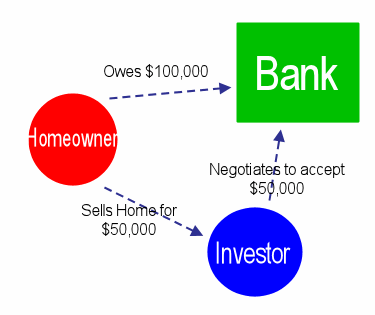Welcome to San Diego Blog | March 9, 2010
Short-Sale Promotional from the White House
Like a day at the Del Mar race Track, the gate is about to drop and San Diego Short Sales will running full stride. In the latest effort to end the foreclosure crisis, the Obama administration is trying to keep defaulting owners in their homes by paying some of them to leave. Yes, you read that correctly!
This latest program, which will allow owners to sell for less than they owe and will even give them some cash to motivate them on their way, is the Obama administration’s most aggressive move to counteract an issue that has refused to be resolved.

More than 5 million households are behind on their mortgages & risk foreclosure. The government’s $75 billion mortgage modification plan has helped only a small percentage of them. San Diego Realtors, economists and even some banking industry representatives say much more needs to be done.
Coming into effect on April 5, the new program will encourage hundreds of thousands of delinquent borrowers who have failed at loan modification programs to get out of their current situation with a process known as a short-sale. A short-sale occurs when a property is sold for less than the balance of the mortgage. Lien holders will be compelled to accept the agreement, forgiving the difference between the market value of the property and what they are owed.
“We want to streamline & standardize the short sale process to make it much easier on the borrower & the lien holder,” said Seth Wheeler, a Treasury senior adviser.
Short Sale Benefits from the New Program
To entice all parties to the table — the homeowner, the lien holder that services the loan, the investor that owns the loan, the bank that owns the 2nd mortgage on the property — the Obama Administration plans to spread its incentive around.
According to the new program, the bank that services the loan, as with all modifications, will receive a $1,000 incentive. There will also be another $1,000 that can go toward a second loan, if one exists. For the first time ever, the government would give money to the distressed homeowners themselves in the form of $1,500 cash for “relocation assistance.”
Provided the incentives prove successful, the short sales program would have multiple benefits. For the investors that own many home loans, there is the prospect of getting more money with a short-sale than with a foreclosure.
The benefit to the borrower would be the likelihood of suffering less damage to credit ratings. Furthermore, as part of the transaction, they will get the lender’s assurance that they will not later be sued for an unpaid mortgage balance.
The draw for the administration is that there is also the concern that millions of foreclosures could delay or even reverse the economy’s timid recovery — the last issue it wants do deal with in an election year.
For communities, the plan will mean fewer empty foreclosed houses with dead lawns and mosquito infested swimming pools waiting to be sold by banks. Some estimate that as many as half of all foreclosed properties are ransacked by either the former owners, tenants, or vandals, which further depresses the value of the property and pulls down the value of neighboring homes.
The Day of the Short Sale
If short sales are about to have their heyday, it has been a long time in the making. When the foreclosure crisis began, lenders shunned short sales. Lien holders were not equipped to deal with the labor-intensive process and were suspicious of it.
The main issue the lenders originally had with short sales is that they are “tailor-made for fraud,” said Mr. Lawler, a former executive at the mortgage finance company Fannie Mae.
Under the administration’s new federal program, a lender will use a real estate agent to estimate the value of a home and thus the minimum to agree to accept. The estimated figure will not be shared with the owner, but if an offer comes in that is equal to or higher than this amount, the lender must agree to accept it.
Quotes and Statistics from NY Times article.